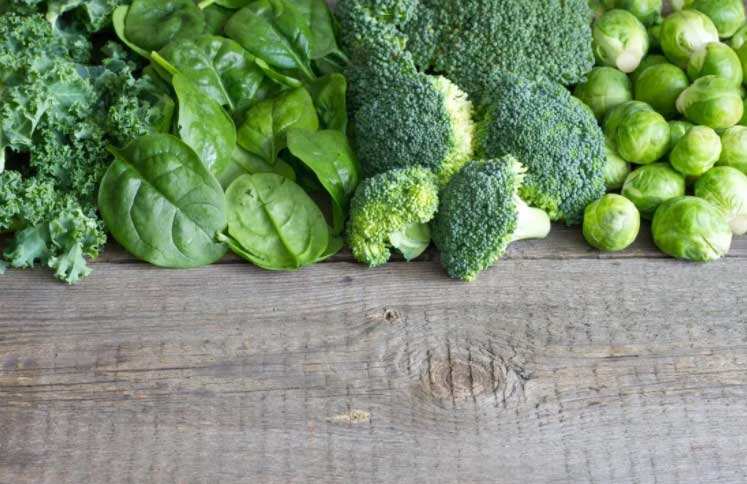
A new study of older women living in Australia finds that eating more vegetables — especially cruciferous vegetables, such as broccoli, cabbage, Brussels sprouts, and cauliflower — might help to prevent clogged arteries, or atherosclerosis, a main cause of heart attack and stroke.
“This is one of only a few studies,” explains lead study author Lauren Blekkenhorst, currently at the University of Western Australia in Perth, “that have explored the potential impact of different types of vegetables on measures of subclinical atherosclerosis, the underlying cause of cardiovascular disease.”
In a paper that is now published in the Journal of the American Heart Association, she and her colleagues suggest that, should their findings be confirmed in further studies, guidelines on how to eat healthfully should emphasize that a diet rich in cruciferous vegetables may protect against vascular disease.
What Are Cruciferous Vegetables?
Cruciferous vegetables belong to the Brassica genus, which is why they are also called brassicas. In the United States, they might also be referred to as cole crops.
Such vegetables include arugula, cabbage, cauliflower, broccoli, Brussels sprouts, kale, horseradish, turnips, radish, watercress, collard greens, and others.
Cruciferous vegetables are rich sources of: fiber; vitamins C, E, and K; several carotenoids; folate; and minerals. They also contain sulfur compounds known as glucosinolates, which account for their somewhat bitter taste and pungent smell; glucosinolates and are also thought to be important for generating the associated health benefits.
Vegetables And Cardiovascular Disease
When we cook and eat cruciferous vegetables, the glucosinolates contained within them break down into biologically active compounds, such as nitriles, indoles, isothiocyanates, and thiocyanates.
Evidence from both cell and animal studies suggests that certain indoles and isothiocyanates may reduce the risk of cancer. That being said, evidence from human studies is less conclusive.
In their study paper, Blekkenhorst and team note that research consistently shows evidence of a link between a higher consumption of vegetables and a reduced risk of heart disease and stroke.
They explain how measuring the thickness of the walls of carotid arteries in the neck can help to assess the risk of heart attack and stroke, because it is a reliable indicator of atherosclerosis, the “underlying cause of these cardiovascular diseases.”
Atherosclerosis is a condition in which deposits, or plaques, build up on the inside walls of arteries. These plaques are made of cholesterol, fat molecules, calcium, and other compounds in the blood.
Over time, the plaque buildup causes the arteries to narrow and harden, which, in turn, restricts the flow of blood carrying oxygen and nutrients to organs and tissues.
Eventually, blood flow can become so restricted that it leads to heart attack, stroke, and sometimes even death.
Types Of Vegetable And Atherosclerosis
The authors discuss how the Mediterranean diet, the vegetarian diet, and other diets that have high vegetable intakes have been linked to less thickening of the carotid artery wall.
“However,” they add, “the role of individual dietary components, such as vegetables, is uncertain.” In addition, they note that there has been little investigation of links between “specific types of vegetables” and “reduction in atherosclerosis.”
That is why, for their study — in which they examined the links between vegetable intake and carotid artery measures of atherosclerosis — Blekkenhorst and her colleagues also examined links with types of vegetable.
They analyzed data on 954 women living in Australia who were aged 70 or older in 1998, which was when they filled in detailed questionnaires about their food intake.
Among other things, these questionnaires asked about the frequency of vegetable consumption, on a 10-point scale that ranged from “never” to “three times or more per day.”
The women also noted, from a choice of 24 types, which vegetables they ate, such as: yellow, orange, and red; legumes; leafy greens; cruciferous vegetables; and alliums such as onions, shallots, garlic, and leeks.
In 2001, all the women underwent sonogram exams that measured the thickness of their carotid artery walls and assessed severity of plaque buildup.
Cruciferous Veg For Reduced Artery Thickness
The results showed that the women who consumed the most vegetables had, on average, carotid artery walls that were 0.05 millimeters thinner than women who consumed the fewest vegetables.
Blekkenhorst explains that this difference is “likely significant, because a 0.1-millimeter decrease in carotid wall thickness is associated with a 10 percent to 18 percent decrease in risk of stroke and heart attack.”
She and her team also found that for every 10 extra grams of cruciferous vegetables consumed per day, there was a 0.8 percent reduction in average thickness of carotid artery wall. No such link was found for other types of vegetable.
“After adjusting for lifestyle, cardiovascular disease risk factors (including medication use) as well as other vegetable types and dietary factors,” says Blekkenhorst, “our results continued to show a protective association between cruciferous vegetables and carotid artery wall thickness.”
It is important to note that, because of limitations of the study design, the results do not prove that eating more cruciferous vegetables prevents or reduces the thickening of artery walls. However, neither do they contradict the idea.
“Still, dietary guidelines should highlight the importance of increasing consumption of cruciferous vegetables for protection from vascular disease.”
Lauren Blekkenhorst
Important Notice: This article was originally published at www.medicalnewstoday.com by Catharine Paddock, Ph.D.where all credits are due. Fact checked by Jasmin Collier.
Disclaimer
The watching, interacting, and participation of any kind with anything on this page does not constitute or initiate a doctor-patient relationship with Dr. Farrah®. None of the statements here have been evaluated by the Food and Drug Administration (FDA). The products of Dr. Farrah® are not intended to diagnose, treat, cure, or prevent any disease. The information being provided should only be considered for education and entertainment purposes only. If you feel that anything you see or hear may be of value to you on this page or on any other medium of any kind associated with, showing, or quoting anything relating to Dr. Farrah® in any way at any time, you are encouraged to and agree to consult with a licensed healthcare professional in your area to discuss it. If you feel that you’re having a healthcare emergency, seek medical attention immediately. The views expressed here are simply either the views and opinions of Dr. Farrah® or others appearing and are protected under the first amendment.
Dr. Farrah® is a highly experienced Licensed Medical Doctor certified in evidence-based clinical nutrition, not some enthusiast, formulator, or medium promoting the wild and unrestrained use of nutrition products for health issues without clinical experience and scientific evidence of therapeutic benefit. Dr. Farrah® has personally and keenly studied everything she recommends, and more importantly, she’s closely observed the reactions and results in a clinical setting countless times over the course of her career involving the treatment of over 150,000 patients.
Dr. Farrah® promotes evidence-based natural approaches to health, which means integrating her individual scientific and clinical expertise with the best available external clinical evidence from systematic research. By individual clinical expertise, I refer to the proficiency and judgment that individual clinicians acquire through clinical experience and clinical practice.
Dr. Farrah® does not make any representation or warranties with respect to the accuracy, applicability, fitness, or completeness of any multimedia content provided. Dr. Farrah® does not warrant the performance, effectiveness, or applicability of any sites listed, linked, or referenced to, in, or by any multimedia content.
To be clear, the multimedia content is not intended to be a substitute for professional medical advice, diagnosis, or treatment. Always seek the advice of your physician or other qualified health providers with any questions you may have regarding a medical condition. Never disregard professional medical advice or delay in seeking it because of something you have read or seen in any website, video, image, or media of any kind. Dr. Farrah® hereby disclaims any and all liability to any party for any direct, indirect, implied, punitive, special, incidental, or other consequential damages arising directly or indirectly from any use of the content, which is provided as is, and without warranties.








